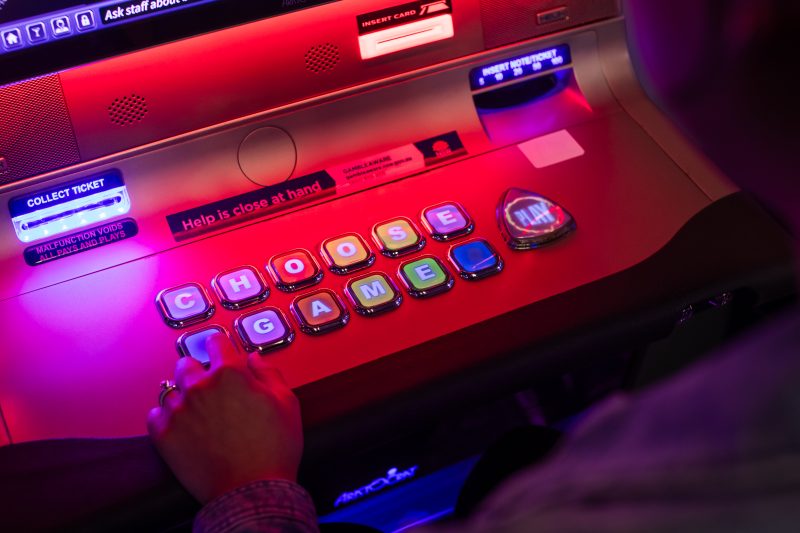ACT Labor and Greens have jointly called on the need to establish an independent inquiry into the future of the ACT club industry.
ACT Chief Minister Andrew Barr explained to the Legislative Assembly last week the independent inquiry would help advise government on the steps necessary “to develop and implement a club and industry revenue activity and worker transition plan”.
Barr said: “I am hopeful that these initial steps can then lead to further work on practical measures to reduce harms caused by gambling addiction, while supporting a sustainable community club sector.
“I believe these initial reforms are a welcome step forward and open the door to further reforms.”
Both parties also want to see the operation of gaming machines banned between 2am and 10am every day, a move that resembles similarities to the mandatory closure period for gaming rooms that has been introduced in Victoria.
Barr noted that introducing the mandatory gaming machine closures will “provide a mandated break in play and will reduce harm”.
ClubsACT CEO Craig Shannon has welcomed the joint statement.
“The agreement by all three major parties to the establishment of an independent inquiry on the ACT Club industry and their social and economic role in the ACT is fundamentally important to achieve a sustainable industry and to allow an evidence-based approach to government policy going forward,” he said.
Shannon said the ACT needs a viable club industry and that the sector, highlighting the role that clubs play in the local community.
“Policy outcomes that ignore the economic and social role of our industry only hurt Canberrans across the board. If clubs become unsustainable the economic impact will flow through to the sports and community organisations funded and supported by ClubsACT members. This may leave government and taxpayers to pick up a sizeable cost,” he said.
“At a time when social cohesion and isolation are very real concerns, the club industry provides the great tent pole that provides shelter and support for Canberra’s sporting, cultural and community sectors. This Independent inquiry will provide an opportunity to get transparent facts on the table and hopefully allow a bi-partisan approach to future regulation and policies.”
Barr also took the opportunity to detail other potential harm reduction reforms in the pipeline could include the introduction of account-based cashless gaming, covering both Keno and EGMs, with player activity statements being made available in real-time; the ability to delay access to winnings; mandatory delay top-up mechanisms; and pop-up public health messaging and support service information.
He also proposed that mandatory pre-committed loss limits be established at the time of setting up an account and continued progressive reduction in the number of gaming machines in the territory to 1,000 machines by 2045.
“We believe these measures will reduce harm and that they can be put in place without a central monitoring system,” he said.
“Now, whilst we recognise the potential merits of a CMS, there are several practical concerns that have been raised that further work will be needed to address.
“These include how a CMS would operate within a framework of ongoing machine number reductions in the territory; how the cost of implementation and ongoing operation of a CMS could be reduced; the cost sharing arrangements between the club industry and taxpayers in the implementation and ongoing operation of a CMS; and the interaction with nearby New South Wales venues, given the ability to circumvent an ACT CMS through access to unlinked machines just across the border in New South Wales.
“These are issues that we would like to see adequately addressed before we could support the implementation of the CMS.”
NSW government divulges on cashless gaming trial
Over the border in NSW, gaming minister David Harris revealed during Budget Estimates that there only 14 venues participating in the expanded cashless gaming trial, despite the initial announcement indicating there would be 27 clubs and hotels approved by the Independent Panel on Gaming Reform to take part in the expanded trial.
According to Harris, some venues backtracked because of the cost and complexities that would be involved in participating in the trial.
“Once people worked out the cost and the technology involved, age of machines and a whole lot of things, it wasn’t appropriate. So, some other venues came on board; some others didn’t take up the offer,” he said.
Hospitality and Racing deputy secretary Tarek Barakat also clarified during Budget Estimates that while 207 people have signed up to participate in the cashless gaming trial, only 32 are active users. So far, the cost of running the research and evaluated the trial was $634,000, Barakat said.
Despite the numbers, Harris said the government is “getting a really good picture of the environment out there, what would work going forward, and what are the pitfalls”.
“We’re finding issues around things such as how technology work. This is really complex,” he said.
“If you can imagine that it’s an app-based system – which is currently what’s being trialled – there’s a myriad of different phones and there’s different software. They all have to be able to talk to the systems. So, they’re working through all of those issues.”
He added the panel is still on track to deliver a gaming reform report in November.

